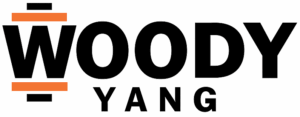Just a few short years ago, the concept of artificial intelligence composing music felt like a quirky novelty, perhaps suitable for a child’s electronic toy. Skeptics, particularly those immersed in the nuanced world of professional audio engineering and production, dismissed it outright. It lacked soul, complexity, the indefinable ‘human touch’. Fast forward to today, and that dismissive stance is rapidly becoming untenable. AI music generators have evolved at a breathtaking pace. What sounded plastic yesterday now seamlessly blends into playlists, often indistinguishable to the average listener from tracks crafted by human hands. Anecdotes abound of consumers failing to spot AI-generated songs amongst their favorites, and even finding themselves drawn to the synthetic creations. While some audio professionals can still detect subtle anomalies, the rapid iteration of AI models suggests these artifacts may soon disappear entirely. The era of AI-generated music isn’t just coming; it’s already here, and its rapid maturation is forcing the music industry into a moment of reckoning.
This technological tsunami arrives at a critical juncture, setting up what feels like a high-stakes standoff: will AI become a powerful co-pilot for human creativity, or will it decimate the livelihoods of artists and industry professionals? The potential futures presented are stark. In a worst-case scenario, a deregulated landscape could see AI dominating streaming platforms with an endless supply of royalty-free content, marginalizing human artists financially. Imagine AI-powered agents capable of autonomously writing, producing, marketing, and even performing music – entities that demand no creative freedom, no time off, and no royalties beyond their initial development cost. This could lead to a flood of generic, algorithmically optimized tracks designed purely for maximum listenership, potentially diluting the value of music itself. Yet, there’s a counter-vision: one where governments implement sensible regulations regarding AI training data, platforms adopt ethical practices, and AI tools become powerful amplifiers for human artists, not replacements. The outcome hinges on decisions made in the very near future.
Beyond the existential threat, AI is already proving its utility as a tool within the existing music ecosystem. Streaming platforms leverage AI algorithms to analyze user behavior, preferences, and listening habits with incredible precision, curating personalized playlists like Spotify’s Discover Weekly or Apple Music’s Personalized Radio. This isn’t just a convenience for listeners; it’s a potent discovery engine for artists seeking to connect with new, engaged audiences. Furthermore, some corners of the industry are exploring how artists and labels might benefit financially from the rise of AI. This includes licensing existing music catalogues for AI training datasets, effectively generating passive income from their past work. There’s also the potential for artists to receive royalties from AI-generated tracks that deliberately emulate their distinctive style or even utilize synthetic voices trained on their own. This shifts the dynamic from outright replacement to a more complex model of licensing, collaboration, and leveraging one’s artistic identity in the AI age.
However, the most compelling argument for the continued centrality of human artists lies in what AI currently struggles to replicate: the intangible, deeply human elements of music creation and performance. While AI can generate technically proficient tracks at an astonishing rate – Udio is reportedly churning out 10 songs per second – it often lacks the spontaneous, collaborative energy of a jam session, the unspoken communication between musicians, or the raw emotional depth conveyed through a live performance. Think of the legendary guitar duels in blues music or the improvisational magic shared between bandmates. These moments are born from human connection, shared experience, and the unpredictable spark of live interaction. An influx of formulaic, AI-generated tracks “in the style of” established artists, lacking this human variability and soul, could potentially lead to listener fatigue, a sense of sonic homogeneity that ultimately devalues the listening experience.
The music industry stands at a crossroads, facing a future that promises both unprecedented opportunity and significant disruption. The generative AI music market is projected to explode, reaching $3.1 billion by 2028. The critical question isn’t just about the size of the pie, but who gets to eat it. Will this growth primarily benefit the technology companies building the AI models, or can a framework be established that ensures artists, producers, and labels also capture a meaningful share? Navigating this complex landscape requires more than just adapting to new tools; it demands a fundamental re-evaluation of value, ownership, and the very definition of artistry in the digital age. As AI becomes increasingly sophisticated, the conversation must shift from fearful resistance or blind adoption to one of thoughtful integration, ethical governance, and a renewed focus on celebrating the unique, irreplaceable human element that has always been the heart of music.













